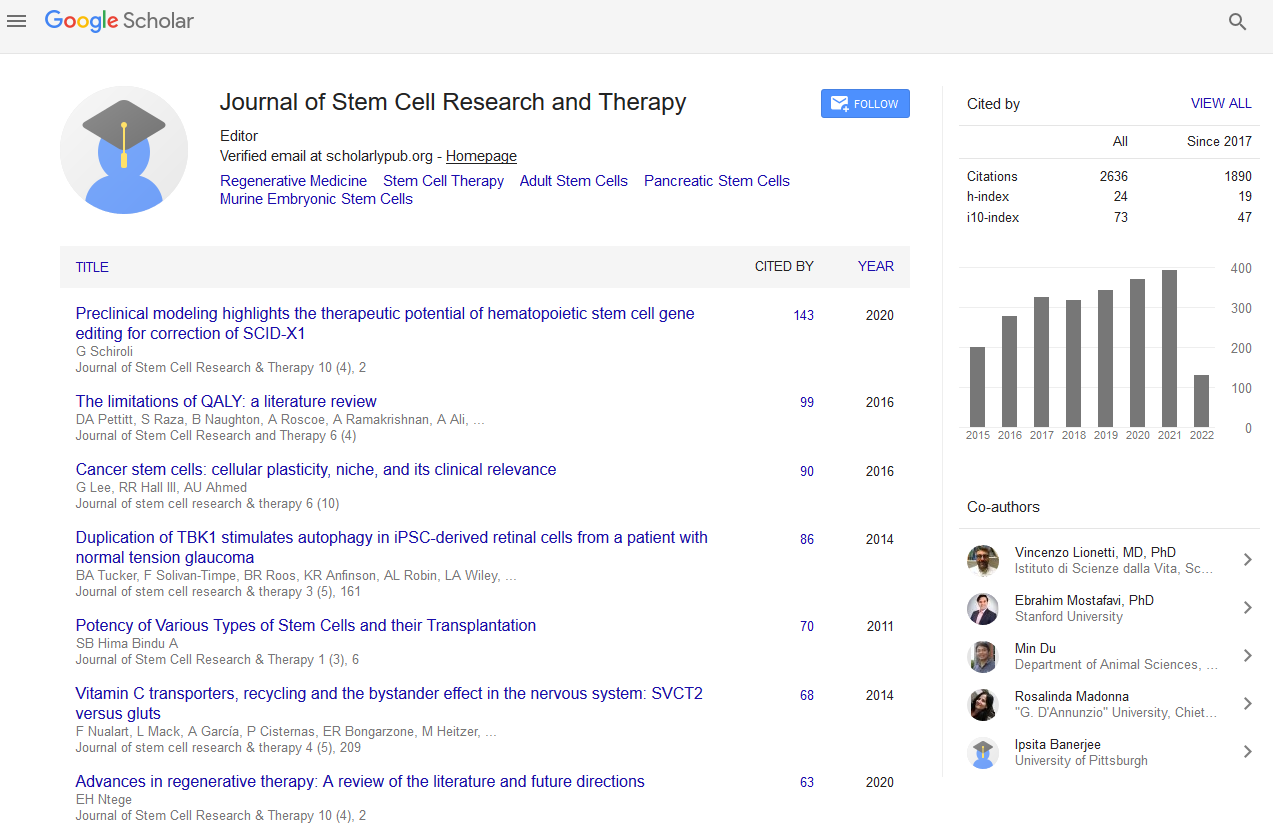Indexed In
- Open J Gate
- Genamics JournalSeek
- Academic Keys
- JournalTOCs
- China National Knowledge Infrastructure (CNKI)
- Ulrich's Periodicals Directory
- RefSeek
- Hamdard University
- EBSCO A-Z
- Directory of Abstract Indexing for Journals
- OCLC- WorldCat
- Publons
- Geneva Foundation for Medical Education and Research
- Euro Pub
- Google Scholar
Useful Links
Share This Page
Journal Flyer

Open Access Journals
- Agri and Aquaculture
- Biochemistry
- Bioinformatics & Systems Biology
- Business & Management
- Chemistry
- Clinical Sciences
- Engineering
- Food & Nutrition
- General Science
- Genetics & Molecular Biology
- Immunology & Microbiology
- Medical Sciences
- Neuroscience & Psychology
- Nursing & Health Care
- Pharmaceutical Sciences
A big data analysis platform to unveil gene interactions in cancer
4th International Conference and Exhibition on Cell & Gene Therapy
August 10-12, 2015 London, UK
Benjamin Y M Yung1, Xihong Lin2, Godwin Yung2, S C Cesar Wong1, Fengfeng Wang1 and Lawrence W C Chan1
Scientific Tracks Abstracts: J Stem Cell Res Ther
Abstract:
We have achieved a breakthrough in the cancer genomics by developing a novel big data analysis platform for analysing the
interactions among genes. In order to compare distributions of expressional correlations between neoplastic and normal
states and to further reveal their structural differences, a threshold was identified to define a strongly co-expressed gene network
with the best coherence to neoplasm phenotype. By applying this novel structural co-expression analysis, we found the genomewide
co-expression structure in the normal state was stronger than that in Chronic myelogenous leukemia (CML). Conversely,
more links between Nucleophosmin 1 (NPM1) and BCR-ABL-related pathway were noted in CML. Normal-specific network
showed dissociation of NPM1 with ribosomal proteins (RP) while CML-specific co-expressions rendered a large network
connecting NPM1 to RP genes through RPL10A, RPL31 and RPL36A. Our results revealed a critical role of NPM1 in joining
a cascade of ribosomal biogenesis, protein synthesis, cell proliferative and anti-apoptotic events in CML. We speculate that
NPM1 and its co-expressed genes may be illegitimately activated in CML, as inferred by their positive expressional correlations.
This study has assured a novel structural co-expression network analysis platform, which unveils cancer pathogenesis and its
potential NPM1-oriented treatment strategy. Co-expression analysis discovers novel unregulated patterns of gene network for
understanding cancer biology, identifying new targets for treatment and all these innovations contribute to great science. This
platform can be readily applied to other diseases for diagnostic, prognostic and therapeutic investigation.
Biography :
Benjamin Y M Yung obtained his PhD in Pharmacology from Baylor College of Medicine. He had his Postdoctoral training in the lab of the Nobel Laureate Arthur
Kornberg at Stanford University. He is currently Chair-Professor of Biomedical Sciences and Head of the Department. For the past 30 years, he has systematically
explored the biological role of NPM in cancer. He has published over 100 scientific papers that cover broad range of scientific disciplines and techniques. His
achievements and recognitions are reflected in many prestigious awards, including Outstanding Researcher Award, Outstanding Cancer Research Award and
Ministry of Education Outstanding Teacher Award.


